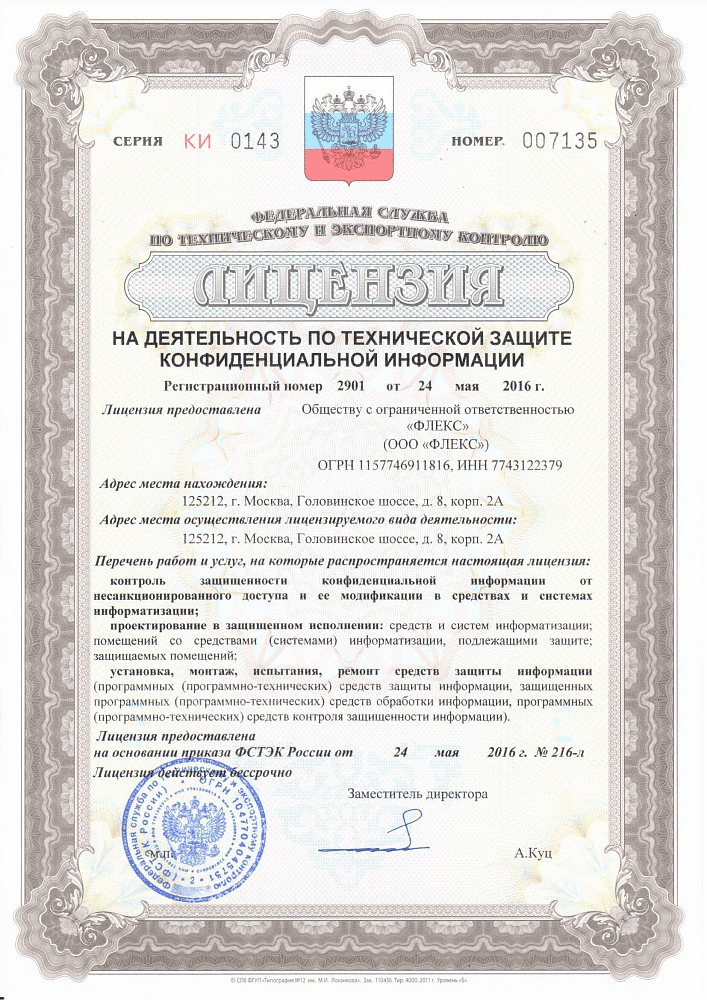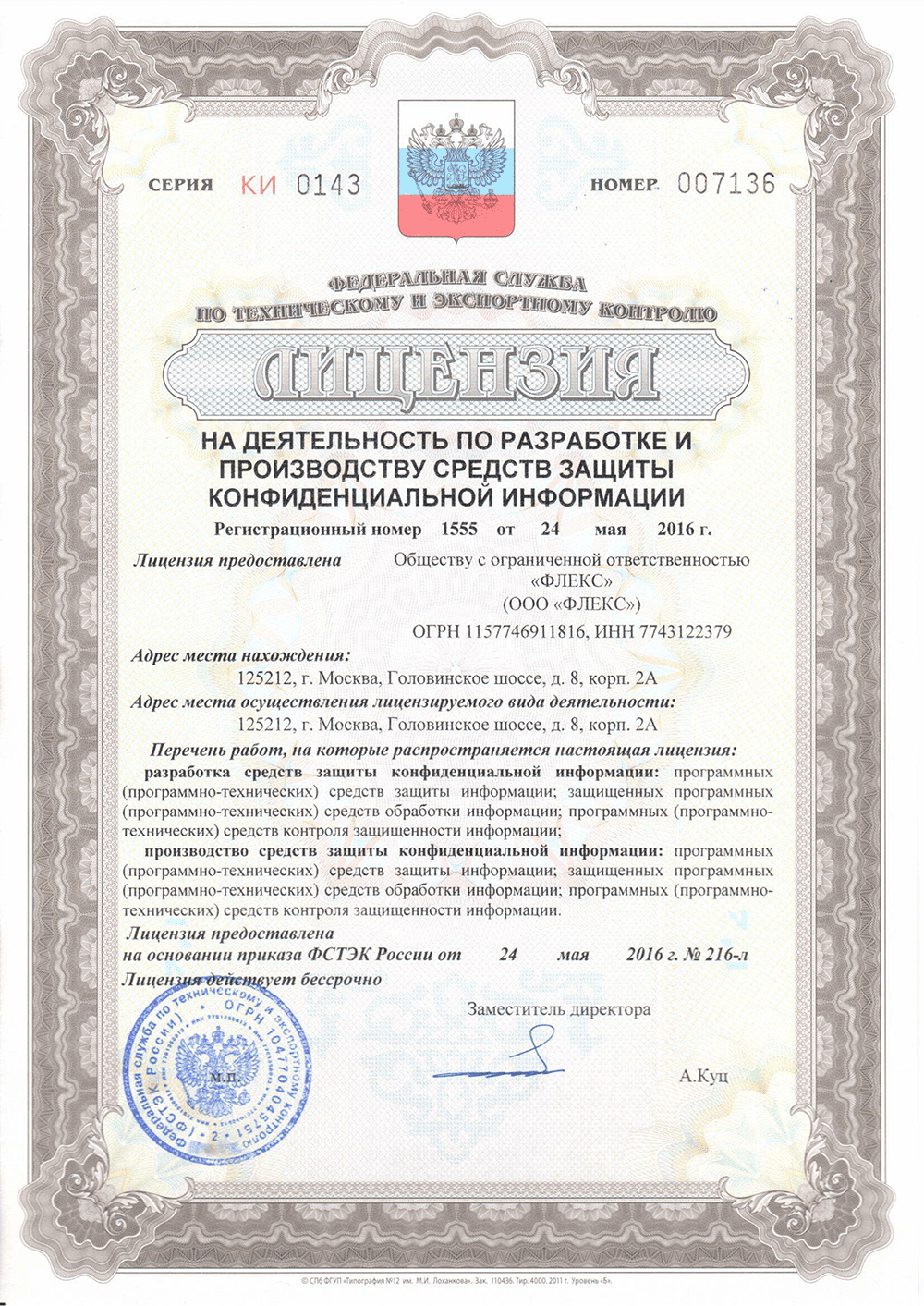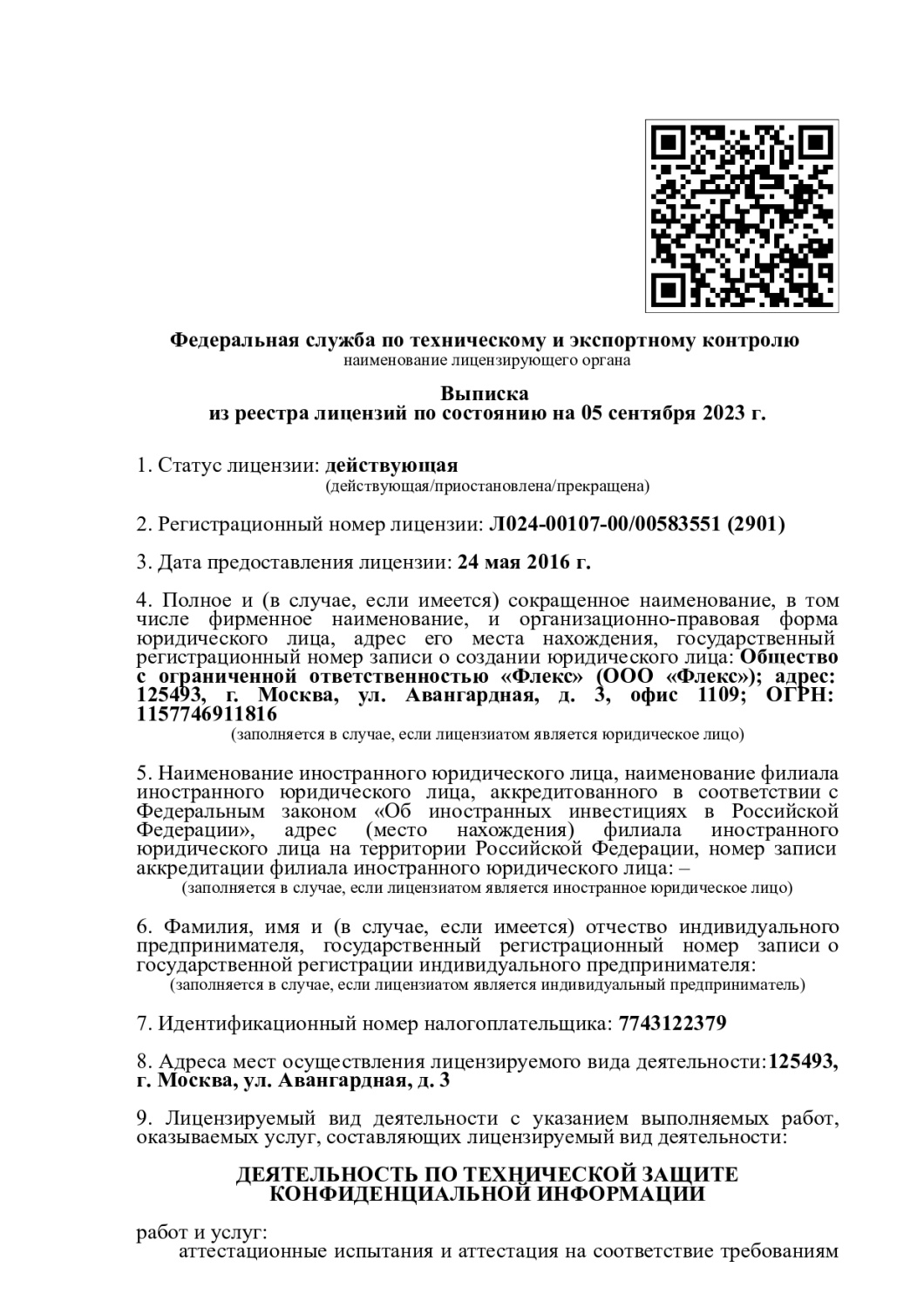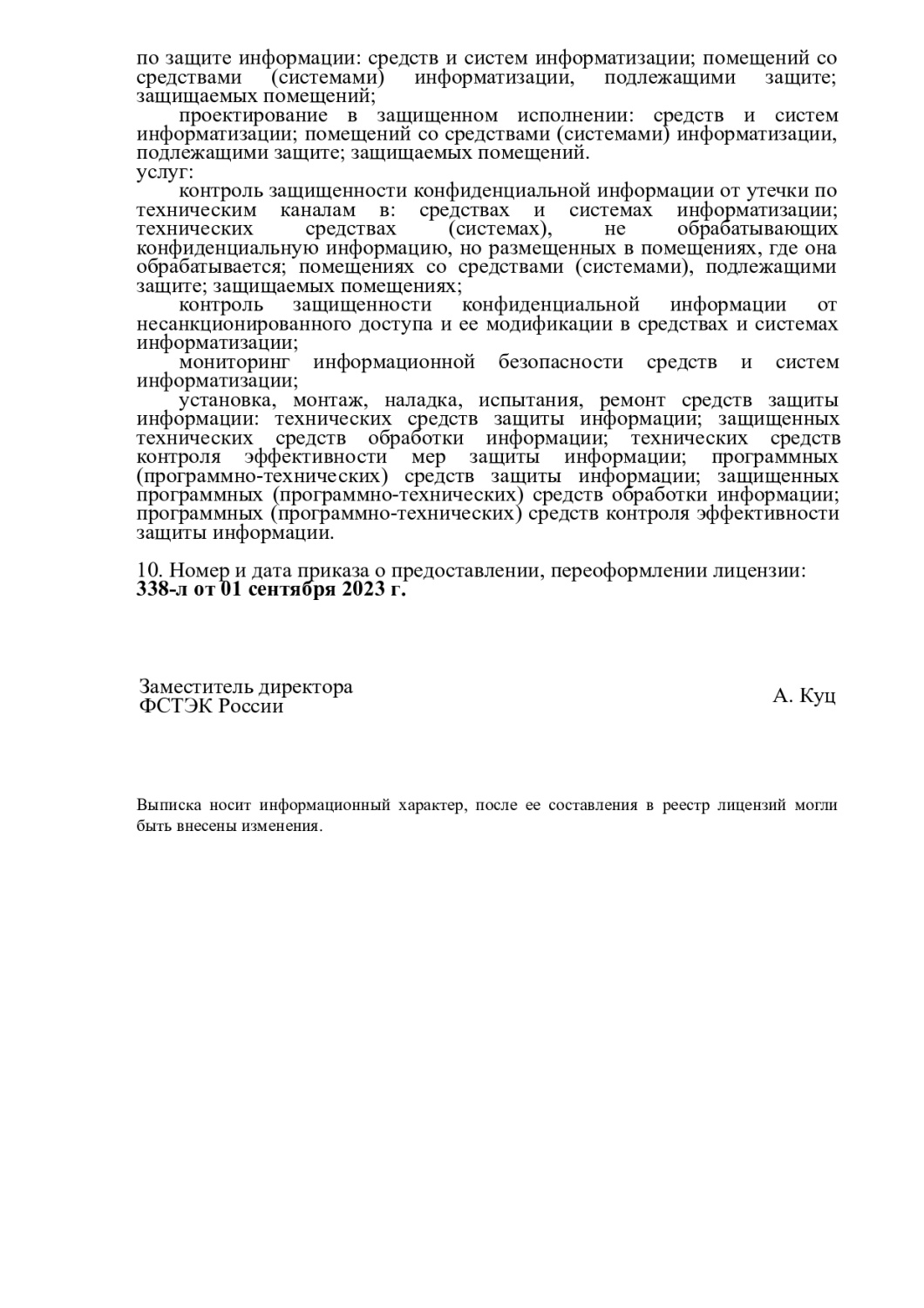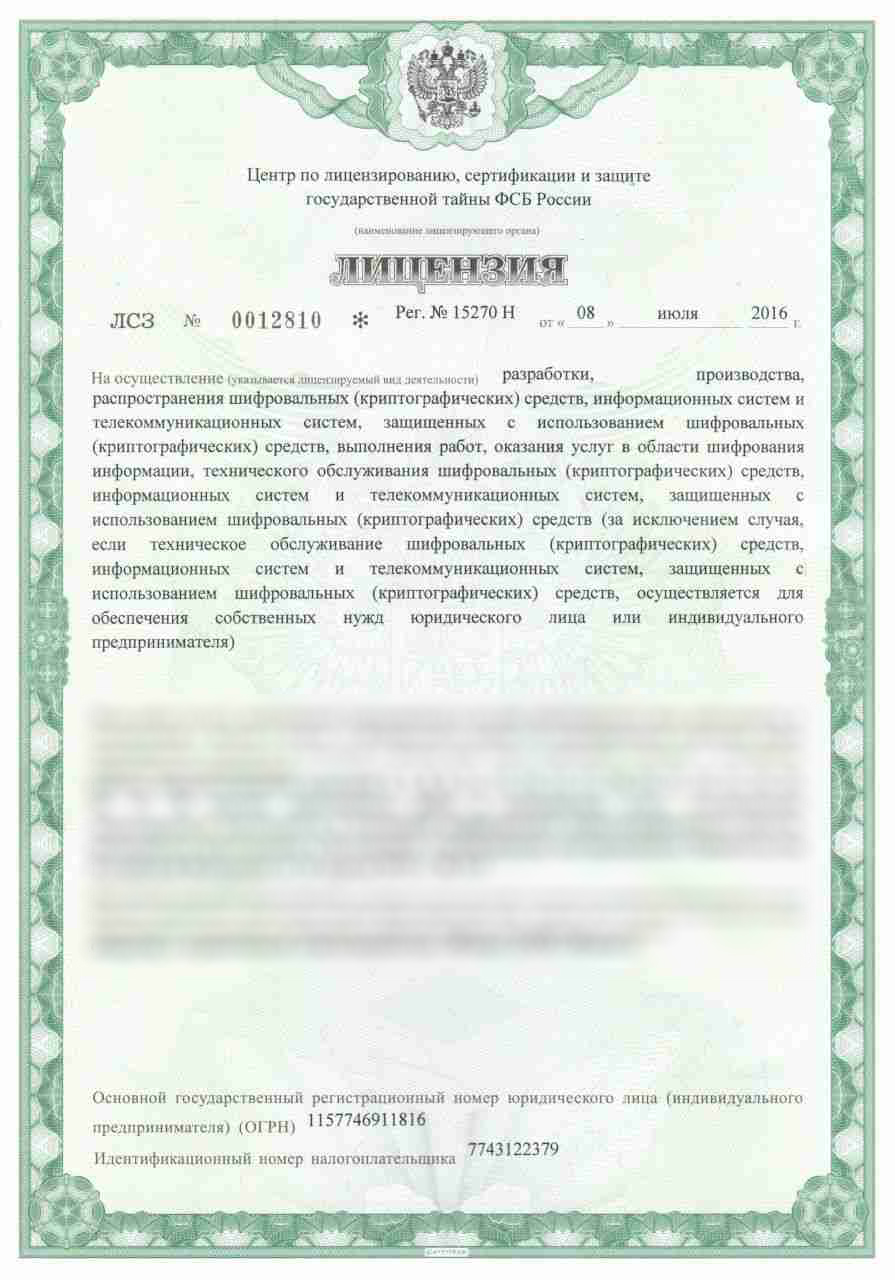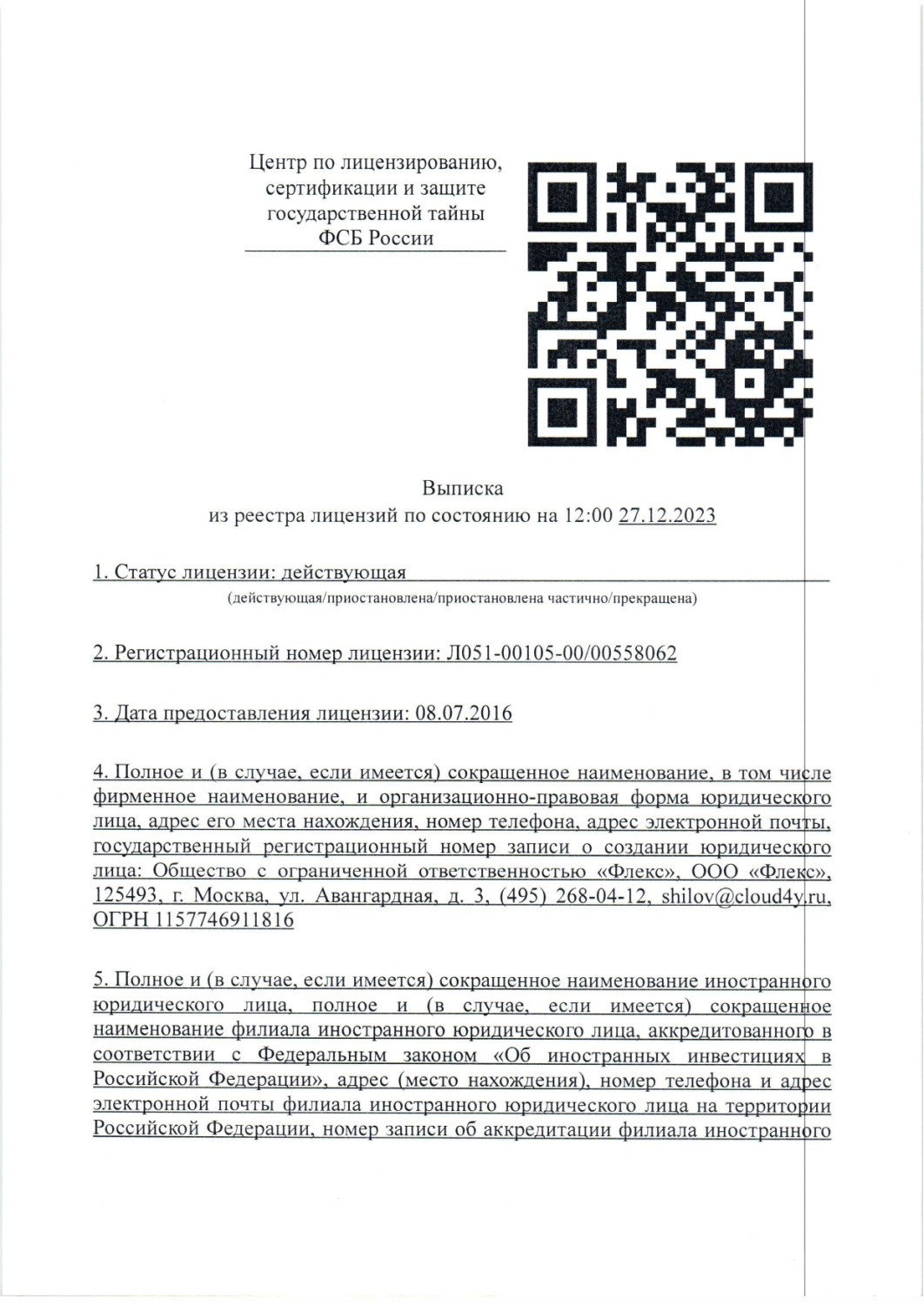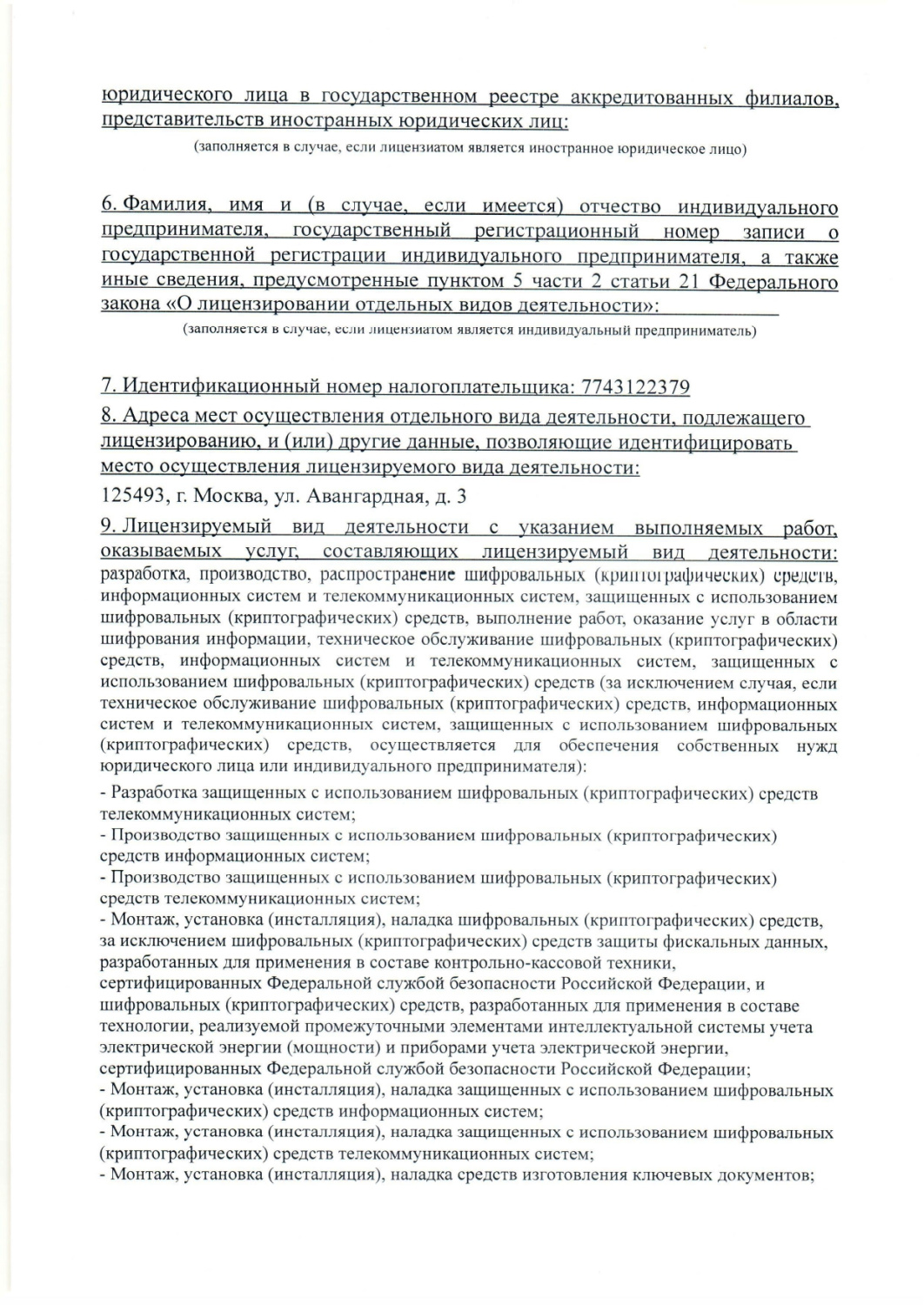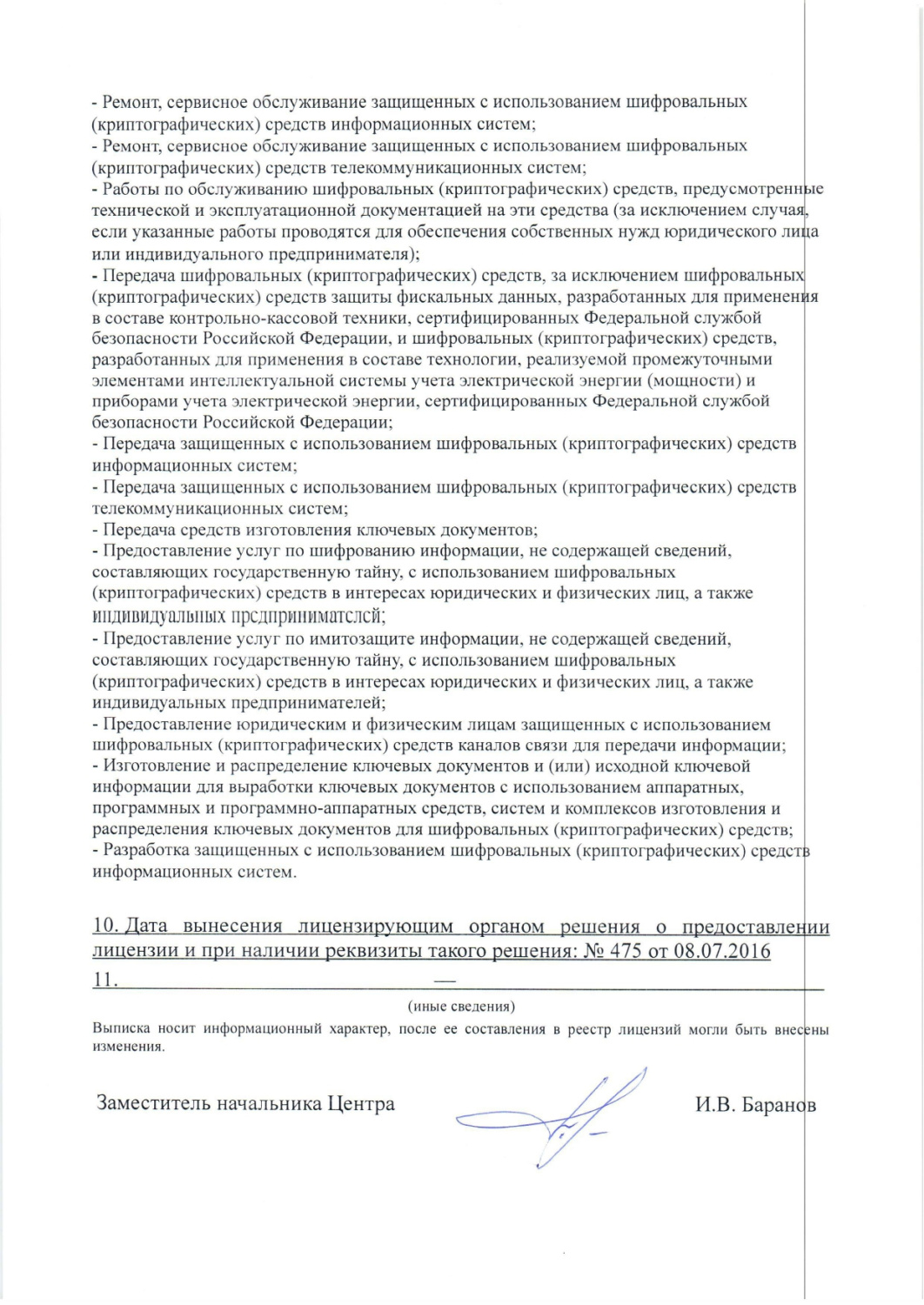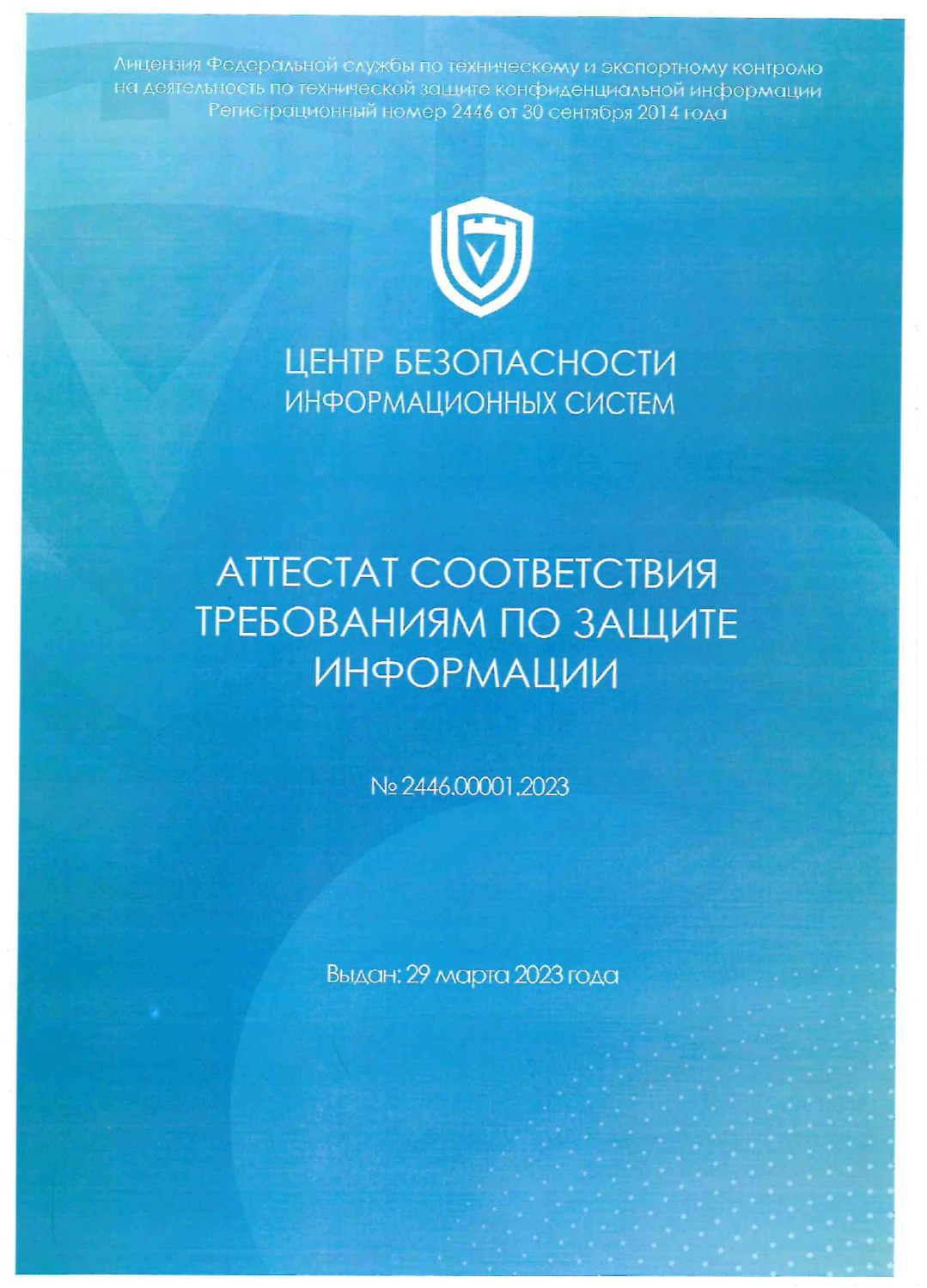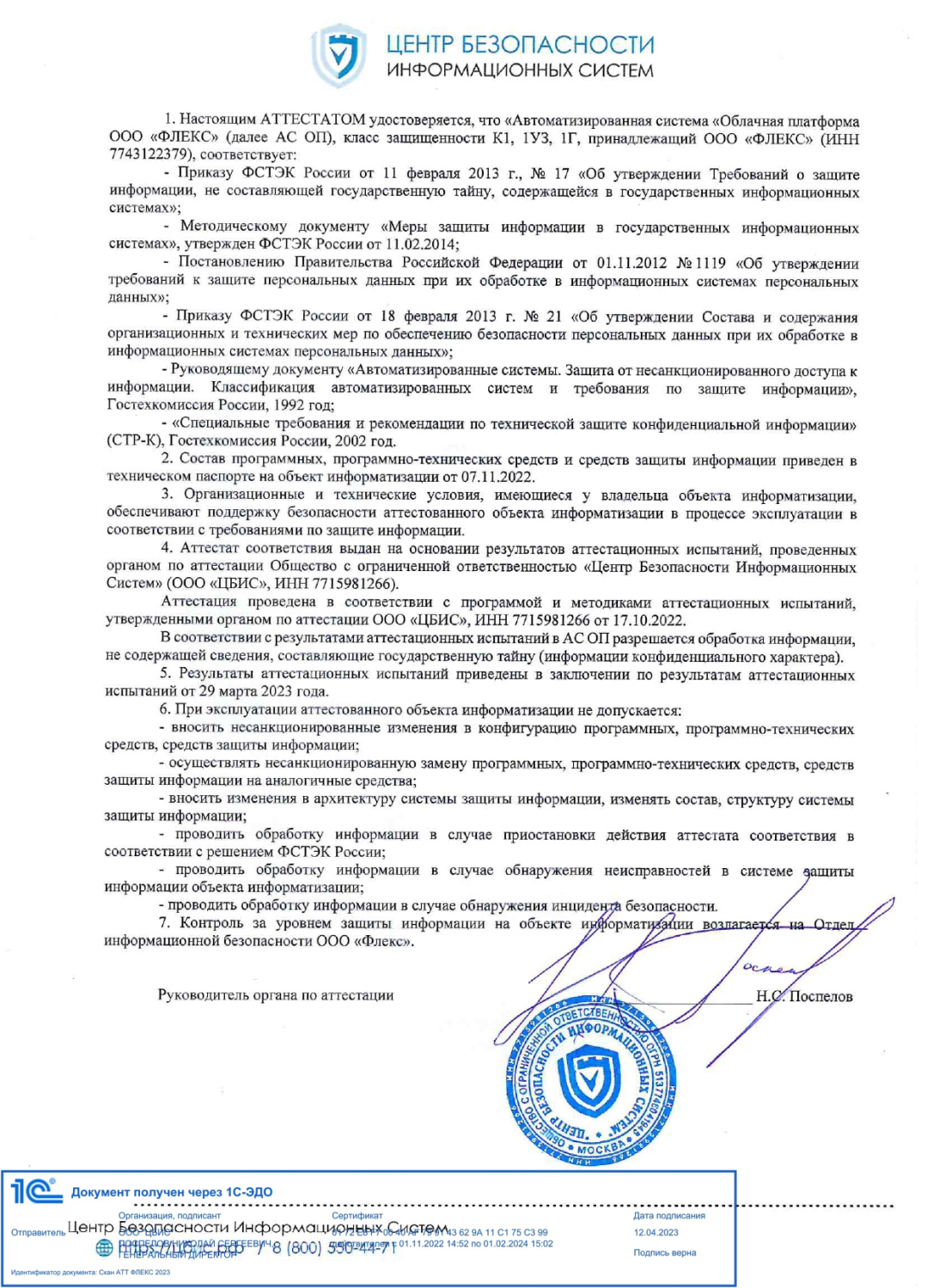Federal Law 152-FZ Cloud
152-FZ Compliant Hosting
Simplify compliance with Russia’s strict data protection laws. Our cloud infrastructure ensures your business avoids legal risks while securely storing personal data of Russian citizens.
Solutions built on both international and Russian software (including import-substitution products).
What Data Protection Level Do You Need?
Russian law classifies personal data into four categories. Let our experts help you determine your requirements:
Public Data (Level 1)
Biometric Data (Level 2)
Special Data (Level 3)
Other Data (Level 4)
Protection requirements depend on your data type and usage. Book a free consultation to assess your needs.
Our Compliance Services
Meeting Federal Law 152-FZ can be complex. Cloud4Y’s security specialists handle every step:
- Audits & protection level assessments.
- Threat modeling using FSB-approved methods.
- Custom security architecture design.
- Documentation (technical designs, organizational policies).
- Implementation of encryption, firewalls, antivirus, and more.
- Compliance testing aligned with FSTEC Order No. 21.
Our Certificates
Why Store Data in Cloud4Y?
- Certified infrastructure (УЗ1-4, 1К, 1Г)
- FSB & FSTEC-licensed security tools.
- Certificates for cloud security elements
- Protection against unauthorized access to data
- SQL, 1C, and database support.
Independent Compliance vs. Cloud4Y Hosting
The table compares the benefits of hosting personal data information systems in the protected cloud with independent organization and certification of the infrastructure.
Independent Setup | Cloud4Y Hosting | |
|---|---|---|
| Full legal responsibility | Zero liability – we handle compliance | |
| High upfront costs for licenses/equipment | No CAPEX – use our certified tools | |
| Mandatory infrastructure certification | Pre-certified (meets 1УЗ, 1Г, 1К standards) | |
| Wasted resources (30%+ idle) | Hourly billing – pay only for active usage | |
| Need in-house IT security team | 24/7 expert support included | |
| Manual audits & reporting | We manage all documentation |
How We Protect Your Data
To bring the infrastructure into compliance with the requirements of Federal Law No. 152, information protection is examined at the data center level and at the provider level.
Data Center Level
Provider Level
Development of internal documents governing the processing of personal data, the identification of responsible persons, the determination of the level of protection of personal data and the protection requirements.
Firewalls, Dr.Web antivirus, encryption, access logs.
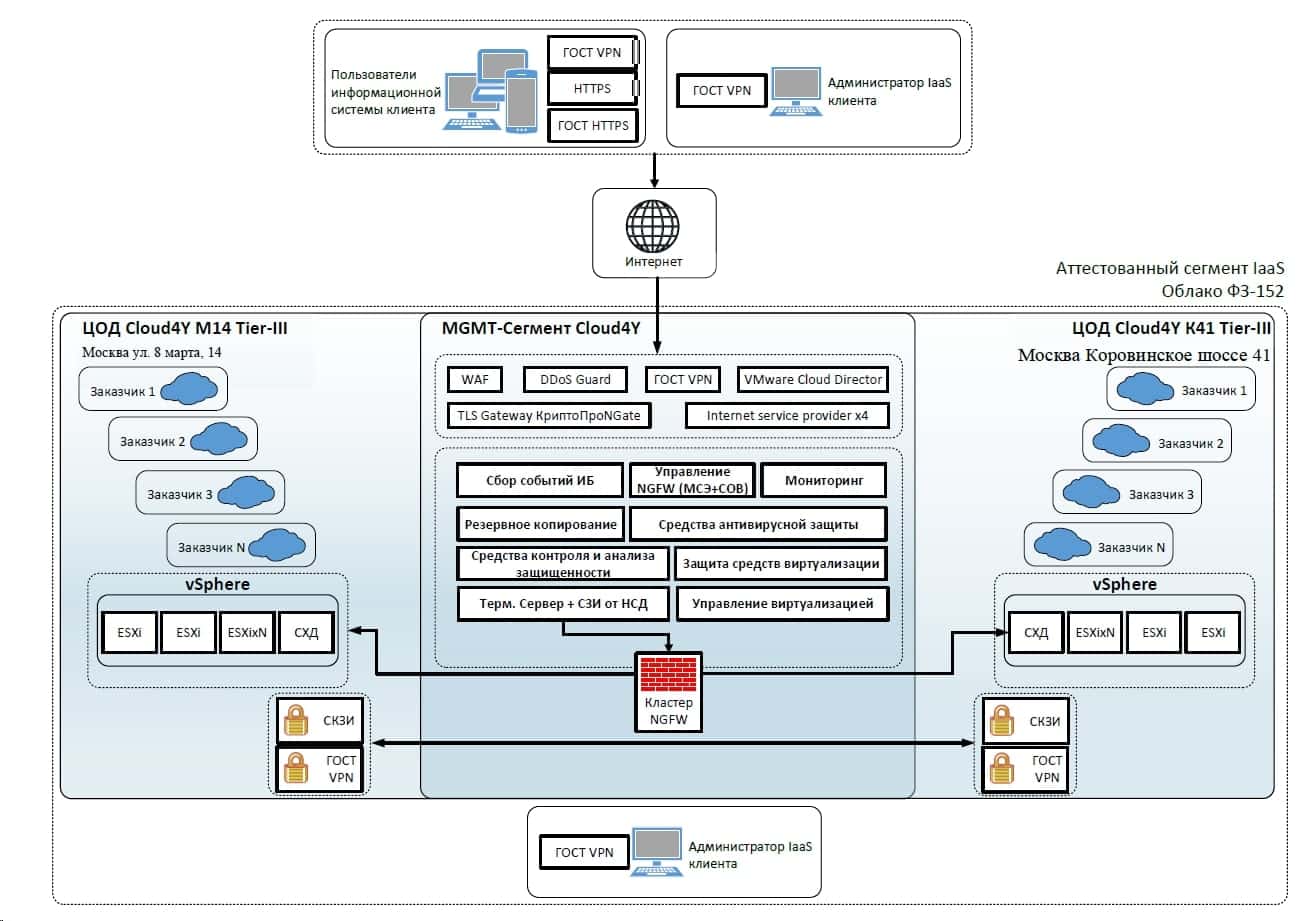
Шаблоны
FAQ
- Medicine (public and private)
- Educational institutions
- Financial institutions
- Insurance sector
- Mobile phone operators
- Travel industry companies
- Recruitment agencies
- Passenger transport
- Real estate companies
- HR and accounting departments of any company
To date, fines under 152-FZ and other measures of responsibility are established by the Federal Law FZ No. 405 "On Amendments to Certain Legislative Acts of the Russian Federation", which entered into force on 02 December 2019.
The subject of the violation "Failure of the operator in the collection of personal data... to ensure the recording, systematisation, accumulation, storage, clarification (updating, modification) or retrieval of personal data of Russian citizens using databases located on the territory of the Russian Federation" 13.11 of the Code of Administrative Offences.
Administrative fine for the first violation of the requirements of the legislation for citizens - up to 50,000 rubles, for officials - up to 200,000 rubles and for legal entities - up to 6,000,000 rubles. In the event of repeated violations, the amount of the fine may be increased by a factor of 2 or even 4. For citizens - up to 100,000 roubles; for officials - up to 800,000 roubles; for legal entities - up to 18,000,000 roubles.
In practice, keeping a single database of personal data of several organisations is a common solution. But in this case, is Article 5 of the Federal Law on Personal Data 152 still complied with from the point of view of data redundancy? Won't the personal data of the employees of one organization be considered redundant in relation to another organization? What is the correct way to prepare documents for each organization if the information system is shared and the information in it is redundant?
In fact, the redundancy concerns the composition of the data subject's personal data. For example, information on medical diagnoses or biometric data is redundant for the purpose of concluding an employment contract. The retention of these data does not correspond to the stated purposes. There are no restrictions that would prohibit the processing of personal data in an information system by different legal entities. Many services on the Internet operate according to this model. For example, the CRM Bitrix24.
In this case, however, it is important that the administrator of the information system sets up the protection system accordingly, so that the data of some users are not available to other users.
Hosting providers who handle personal data must comply with the following requirements :
- Registration and notification: Providers must notify Roskomnadzor of the start of their activities 15 working days in advance.
- Data protection: FSB data protection requirements must be implemented, including the appointment of a security officer and intrusion prevention measures.
- Data storage: All personal data must be stored in Russia and user information must be kept for 3 years.
- User identification: Providers must identify and authenticate customers using specified methods.
- Interaction with the FSB: Obligation to provide the necessary computing power for operational and investigative activities and to respect data confidentiality.
These requirements are designed to protect personal data and ensure its security in accordance with the law.
To check if your hosting provider is compliant with the requirements of FZ-152, follow the steps below :
- Ask for a certificate of compliance: Make sure the provider has an FSTEC certificate confirming that the infrastructure meets the requirements for the security of personal data.
- Review documentation: Familiarise yourself with the regulatory and methodological documentation confirming information protection measures and the organisation of personal data processing.
- Find out where the servers are located: Make sure that the provider's servers are located in Russia, which is a prerequisite for storing personal data of Russian citizens.
- Conduct a security audit: Ask for information on audits and data security measures.
- Look for certified security measures: Ensure that the provider uses certified information security measures and complies with the requirements of FSTEC Order No. 21.
These measures will help ensure that the hosting provider complies with the requirements of the legislation on the protection of personal data.

